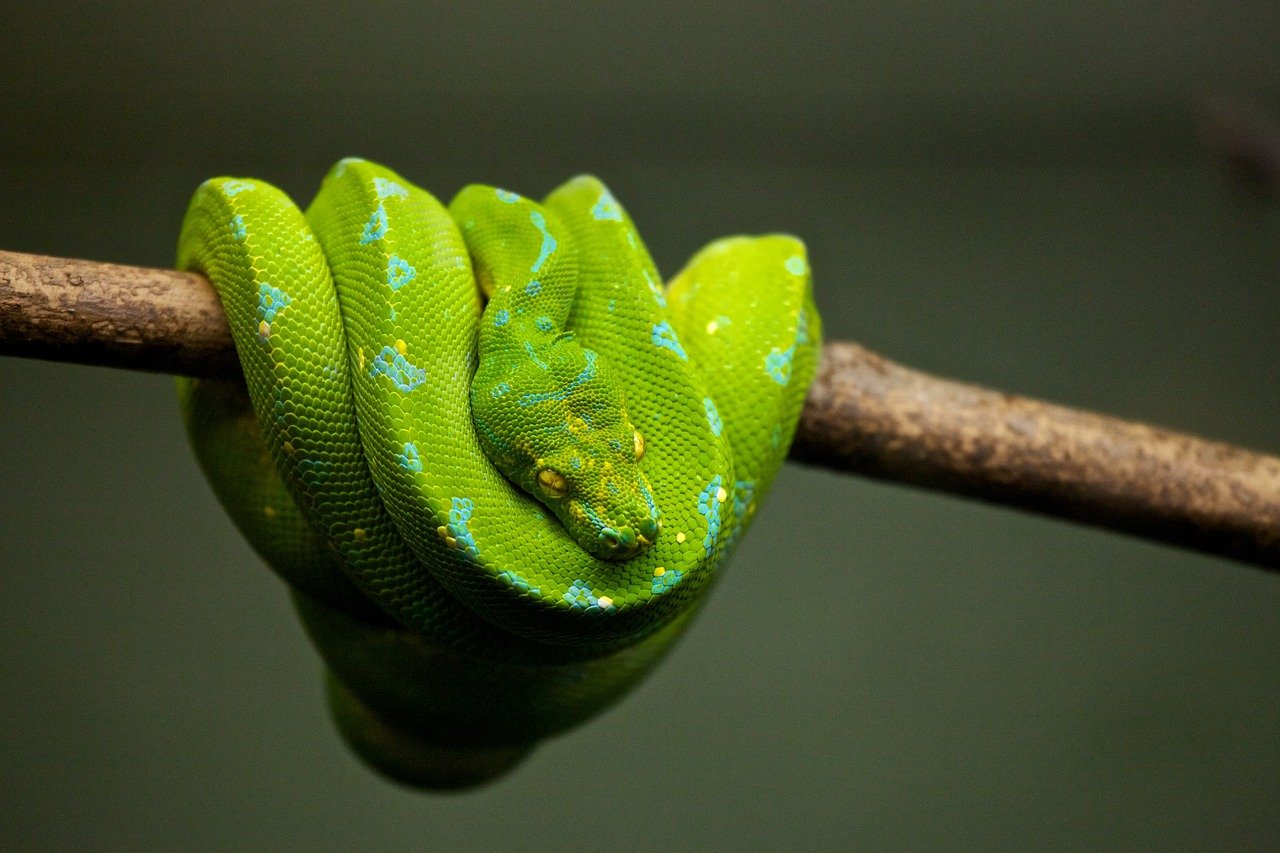The snake around you may sound like a hiss or a shriek. Almost all snakes make some sort of sound, whether it’s rattling, hissing, or rubbing their scales to produce a raspy, dry sound. One research showed that king cobra, the most venomous snake, opens its mouth to make a growling sound, similar to an angry German shepherd. The pine snake has a vocal cord and uniquely produces a distinct raspy, shrieky sound. Out of all the other sounds, you will be amazed to know that snakes make fart sounds too. They produce the popping sound by pushing air out of their vent at the back ends. The Russell’s viper produces a deafening hissing sound. The Sonoran coral snake expels air out of their digestive tract that sounds like a duck quack.
Today we will cover everything related to the sounds produced by the snakes in this world. You will get valuable insight on every query related to snake sounds around you. So, explore till the end to know more. Let’s dive in!
Do snakes make sounds?
Yes, snakes make sounds. They mainly produce a shrieking sound. According to research and studies, most snakes make noises, ranging from rattling and hissing to rubbing the scales to make dry, raspy sounds. One exception, the pine snake, has a vocal cord unlike others and makes sounds more clear.
What is the sound of a snake?
The sound of a snake is hiss. When snakes make a sound, they produce sound energy with a long ‘S’ that occurs to sound like a hiss. Rattle can also be termed as the sound of a snake. The snake makes a spit, a hiss, and an occasional king cobra growl to get their message across. The sound of a snake is also like a clunking sound.
- The research in the early 80s shows that the king cobra, one of the deadliest snakes, produces a growling sound. When swayed towards prey with an open mouth, the venomous species make a growling sound just like an angry German shepherd.
- Every snake makes a familiar hissing sound. Some other sounds made by them include rattling or rubbing the scales to produce a raspy sound.
- Unlike other snakes, the unique pine snake has a vocal cord, which helps them produce a shrieky-like rasping sound. The small snake species called the Sawskill Viper rubs their scales to produce a clunking sound.
- The Russell’s Viper, one of the most aggressive snakes, produces a loud hissing sound. Moreover, the Sonoran coral snake produces an incredible duck quack sound.
How does a snake hiss sound?
A snake hiss sound can be really loud. The tiny holes in their mouths are one of the main reasons for that extra volume sound. Now, check how snakes make hiss sound:
- The organ named ‘glottis’ located in the throat and just behind the tongue helps the snakes to breathe.
- If the snake breathes normally, the glottis will open and close into the windpipe or trachea.
- The glottis of the reptile kingdom always stays closed, unlike the mammals, thus developing a vertical slit until the snake takes another breath.
- A snake expels air out of their glottis forcibly, making their small cartilage piece inside the glottis vibrate. This is how they make their characteristic hissing sound.
Also, the snake can extend out the glottis of the mouth when they eat or consume any prey, allowing them to breathe.

Do snakes make crying noises?
Snakes don’t cry and thus, don’t make crying noises. Snakes other than North American Pine snakes do not have vocal cords so cannot be vocal about pain or discomfort. However, they produce a shrieking sound that can represent their excitement, terror, or pain. Snakes have tear ducts in their body, but they don’t drain like humans, nor do they make crying sounds like us.
- If you ever feel like hearing a crying sound from a snake, it can be their high-pitched noise due to discomfort from feeling attacked.
- When in danger, snakes make popping sounds as a reflex to self-defense mechanisms in their body, which is nothing like a crying sound.
- In many cases, humans confuse their high-pitched shriek with the crying one.
Do snakes make noise at night?
Yes, snakes do make noise at night. Some of the reasons responsible for this behavior are:
- For claiming their territory: This behavior is typical among mammals, birds, and few frogs. However, snakes don’t have ears and have limitations to hearing, unlike the hearing functions in humans. So, they make noise at night to claim the territory and deliver the message of their presence.
- To startle incoming predators: When a snake makes a loud hiss sound, they startle the incoming predators. For instance, if a boa constructor makes a hissing sound, it means they don’t want to be bothered at night.
- For the shedding cycle: The shedding cycle is another reason why they make sounds at night. In this cycle, their eyes become cloudy blue. This makes their vision to be distorted, making them react unusually, unlike other times. If they make hiss sound during this cycle at night, you better leave them alone. This is because it would make them see hissing as a way to stop handling.
- Mating vocalizations: There are high chances that snakes can make noise at night during reproduction.
- For threat display: If the snake makes the hissing sound at night, they do so because of the threat display. They shake their tail, scrape the scales, rattle and make other sounds when they feel threatened.
- Displacement: When a snake moves from one spot to another, primarily through grasses or bushes at night, it can make noises.
What does a snake in the wall sound like?
The snake in the wall makes a hissing sound. From the interior of your home’s drywall, you can hear the snake slithering across the wall, making a hissing sound.
- Snakes that chase mice or rodents can be heard behind the drywall, making slithering and hissing sounds.
- When compared to the sound of a mouse scratching the wall or a pitter-patter of feet running, the snake in a wall sounds unique.
- If there’s a crack or uneven surface on the wall, the snake can produce a chirping sound while climbing up or down.
Can you hear a snake breathe?
Yes, it’s normal to hear a snake breathe. The boa constrictor has two functional lungs, so they can often be heard breathing heavily.
Like singing and speaking, the snake produces the hissing sound from air passing in and out of its mouth and nose. This hiss sound means the snake is breathing in and out heavily.
- Some snakes produce an audible sound during their breathing process. They do so at the exact time or right before their shedding process. This is when their skin expands and contracts while inhaling and exhaling, making some clanking sound.
- If you hear a snake with labored breathing and discharges, most likely, the snake has an upper respiratory infection.
Why do snakes make weird noises?
Apart from the hissing sound, the snakes make weird noises like farting noise similar to popping sound, clanking sound while rubbing the scales together, and duck quack sound from Sonoran coral snake when they expel air out of the digestive tract ends.
The reasons for them to make weird noises are:
- Snakes like King Cobra make word growl noises when they open their mouth, especially to consume something.
- North American Pine snakes, being the only snakes with vocal cords, make rasping sounds with their vocal cords
- They make the hissing sound and often farting sound as a part of their self-defense mechanism when they encounter any threat display.
Various Noises Snake Make | Reasons or Meaning of The Noise | How To Detect The Noise |
Hissing Noise |
|
|
Popping Noise |
|
|
Duck Quack Noise | When the Sonoran coral snake expels air out of their digestive tract ends, they produce this noise. | Similar to the sound of duck quacking. |
Rasping Noise | When snakes rub their scales together, they produce the rasping noise. | Harsh and Sounds like someone’s scratching something |
Conclusion
When a snake is around you, you will be able to guess it from the noise. The noise snakes make may not be as loud, but is certainly different from noise made by rodents or other animals around. You must listen closely and be vigilant as the snake may be venomous.
Be careful, and stay safe!




